Zipline aims to grow f ootprints with diversified offerings
By Eugene Davis
Puma Energy commits to Ghana's energy supply and security through investment in infrastructureenergy

Patricia Obo-Nai recognised among top women CEOs in Africa
OmniBSIC Bank partners with PAPSS to enhance crossborder payments … performs rst transaction to Nigeria

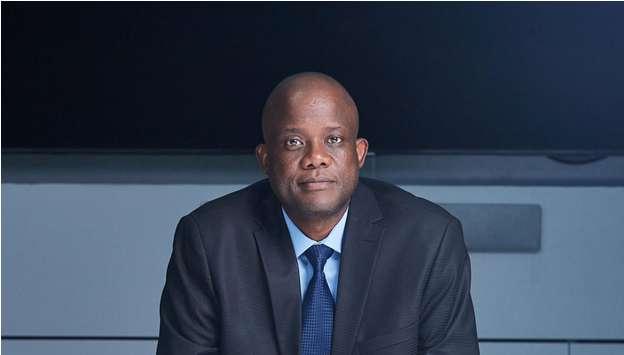


MON D AY, JUNE 04, 2 0 2 3 BUSIN E SS 2 4 C O M G H N E W S F OR B U SIN E SS L E AD E R S
Stor y on page 3
St Stor y on page 2
y on page 4
Stor
Zipline aims to grow footprints with diversified offerings
The General Manager of Zipline Ghana, Mawuli Atiemo says the company will be looking to consolidate its increasing footprints in the aerial delivery space with the introduction of home deliveries and e-commerce.

According to Mr.Atiemo, the next phase for the company as it celebrates four years of establishment in Ghana is to bring “closer to more people”, it currently undertakes most of its activities at the countryside but they intend to do more home deliveries, city deliveries -which he reckons will disrupt the industry and logistics supply it has. “Wherever you are, whatever you need, you should be able to get it at the comfort of your home, that is what the future looks like for us.”
Speaking to journalists to mark four years of its operations in Ghana, Mr. Atiemo said “In terms of diversi cation we are currently exploring other avenues such as agriculture – we currently are doing vaccination in humans, we are looking into doing in animals as well, with the veterinary services directorate in the pilot to explore the possibility for vaccination for poultry, ruminants.
We also exploring the possibility of arti cial insemination for pig production in Ghana -so these are avenues we looking at, there is also
By Pinelopi Koujianou Goldberg

opportunity to look into other delivery models, support other services logistically -postal services. “



A Deputy Minister of Health, Mahama Asei Seini, encouraged Zipline to diversify in order to stay competitive. To him, the country should begin to look at the capabilities of unmanned aerial vehicles extending beyond healthcare and ways to solve problems in other industries. He adds that, the world is envisioning the endless possibilities that drone technology can unlock in various industries and how it can bridge access gaps in agriculture, disaster management and other logistics needs.
He also indicated that government is keen to continue its support for Zipline, “As a government-supported ministry, we are poised to continue to create an enabling environment for Zipline to function while optimizing standard operating procedures to be more focused at underserved populations.”
The US Ambassador to Ghana, Virginia Palmer commended the e orts of Zipline which she says has bolstered bilateral health assistance.
For her, “when we have partnerships for impact as today, we create prosperity, security and jobs in both Ghana and United States and that is a very powerful thing.”
She also disclosed that the US government [Trade and Development Agency] has signed a grant with Zipline earlier this year to fund a feasibility study to develop infrastructure for the rapid delivery via drones of medicines and commercial goods across Ghana and West Africa.”
In all this, she adds the e orts demonstrates United States strong commitment to Ghana and the health of its people.
Zipline was launched in Ghana in 2019 as a medical drone delivery service and has followed it up four years on to set up six centres, three in Nigeria but it is hoping to expand to ve by end of year, one in Kenya, one in Ivory Coast but management is looking to add two before end of year, and according to management there have been invitations from other countries but for now, they are focusing on Ghana, Nigeria, Ivory Coast and Kenya.
In 2019, Zipline made an average of 375 deliveries per month. Over the years, average monthly deliveries have increased by 44 times, reaching 17,000 in 2023.
Today, Zipline employs more than 200 Ghanaians and has made over 350,000 deliveries to health facilities across 13 regions.
Zipline deliveries are seven times(7x) the speed of traditional automobile deliveries.
2 MONDAY, JUNE 05, 2023 | NEWS Your subscription along with the suppor t of businesses t hat adver tise in Business24 -- makes an investment in journalism that is essential to keep the business community in Ghana wellinformed. We value your suppor t and loyalty Contact : editor@business24 com gh Newsroom: 030 296 5315 Adver tising / S ales: +233 24 212 2742 Copyright @ 2019 Business24 Limited All Rights Reser ved L imi t e d
Puma Energy commits to Ghana's energy supply and security through investment in energy infrastructure
sure local people have the right skills to support the industry. Around 98% of Puma Energy Ghana’s employees are already recruited locally and in 2023 Puma Energy is focusing on recruiting some of the best graduates in the country by holding recruitment events at Ghanaian universities including Kwame Nkrumah University of Science and Technology (KNUST) and the University of Ghana.
which helps to maintain a level playing eld among industry players and facilitate market integration. Others include incentives and reductions in bureaucracy that will allow for more private-sector capital to be put into service in energy sector infrastructure.”
Puma Energy Ghana has reafrmed its commitments to Ghana’s energy supply and security through its diverse investments and state-of-the-art strategic energy infrastructure; to make energy easily accessible and a ordable to Ghanaian households and the business community in the wake of growing consumption of petroleum products.
These investments in energy infrastructure are more important than ever as the economy recovers from COVID-19.
Since 2000, the nal consumption of petroleum products has tripled to 4,630 ktoe in 2021 at an annual growth rate of 5.7%. Gasoline and gasoil constitute an average of 36.4% and 51.6% of the total petroleum products consumed in Ghana over the last 21 years respectively according to the 2022 National Energy Statistics report of the Energy Commission of Ghana.
Data from the National Petroleum Authority (NPA) of Ghana as of March 2023 also indicated that a total of 1,303,755 metric tonnes of petroleum products was supplied to the Ghanaian market in the rst quarter of 2023 compared to 1,103,799 metric tonnes supplied in the rst quarter of 2022. This increase in the consumption of petroleum products reinforces the importance of e cient infrastructure in meet-
ing the growing demands at a reliable and a ordable rate.

The investments Puma Energy has made in energy infrastructure are key to addressing the growing demands for petroleum products, be it Gasoil (Diesel), Gasoil (Petrol), or ATK among others not only for the Ghanaian market but also neighbouring countries including Mali, Niger and Burkina Faso as a total of 23,472 metric tonnes of petroleum products was re-exported/transited to these countries in the rst quarter of 2022.
Since it entered into the Ghanaian energy sector in 2006, Puma Energy Ghana has invested signi cantly in energy infrastructure in the country. These recent infrastructure investments include storage terminals at the Kotoka International Airport Aviation and Tema Ridge depots, Takoradi Terminal and Tema Multi Product Terminal (TMPT) which in total represents some 174000 cubic metres of storage capacity, contributing to fuel supply security in Ghana. Puma Energy has also invested in the rst-ever LPG Bottling Plant in Ghana, in support of the country’s Cylinder Recirculation Model, aimed at combating the dangers associated with the poor handling of LPG.
Another essential component of energy security is making
General Manager of Puma Energy Ghana, Zwelithini Mlotshwa, stated: A resilient infrastructure is a major element of sustainable energy systems and in addressing that, Puma Energy Group has constructed storage terminals, which have a signi cant impact on Ghana’s potential for trade and economic growth and also enables Puma Energy to supply seamlessly to customers through its strategic outlets.”

“While the investment in aviation fuel storage at Kotoka International Airport has signi cantly increased capacity and supply security at the airport, the investment in fuel storage at the Takoradi Terminal provides the rst storage facility for gasoline in Ghana’s Western Region, he remarked.
These unique and timely updates and expansions to the existing storage infrastructure terminals and systems have essentially guaranteed a unique integrated supply chain that ensures a ordable oil products' availability and other re ned products are e ciently and safely transported from new and geographically diverse hubs across Ghana.
Touching on energy infrastructure, Zwelithini Mlotshwa remarked, Energy infrastructure must become more secure, sustainable, and resilient. Timely investments in energy infrastructure are contingent partly on an enabling market environment, conducive policy cohesion and a de ned regulatory framework
Mlotshwa also called for collaboration on energy infrastructure security and resiliency to keep pace with rapidly changing demand and supply patterns and to implement new energy policy and technology innovations. This will enable producers and consumers to successfully ful l their shared aspirations in respect of sustainable development and climate change.
Ghana’s energy security, like every other country’s energy security, is dependent on both long-term term and short-term strategies to ensure the supply of energy in line with economic developments and environmental needs, as well as the capability of the energy system to react timeously to unexpected changes in the supply-demand situations.
“As innovation continues to transform energy infrastructure worldwide, Ghana’s growing energy demands beyond 2023 also require infrastructure modernisation and expansion through innovation which will lead to resilient infrastructure, and sustainable investment,” remarked Mlotshwa.
Puma Energy has increased its retail footprint in the country to over 80 lling stations in Ghana and has an ambitious growth plan to ensure nationwide coverage which will see a Puma Energy retail outlet in every regional capital and major town.
Puma Energy is a leading
MONDAY, JUNE 05, 2023 | NEWS 3
supplier of aviation fuel (JET A-1) at Kotoka International Airport, and its extensive links with global airlines and its certi cations to the high-
est international IATA and JIG standards make it the partner of choice for international and local airlines serving Ghana.
The energy giant’s clientele includes several of the world’s leading airlines such as Emirates Airlines, KLM, Ethiopian
Airlines, Delta, South African Airways, Brussels, Egypt Air, Air France, and TAP Portugal, as well as reputable domestic airlines and several others.
Patricia Obo-Nai recognised among top women CEOs in Africa
its focus on African businesswomen leading large-scale businesses and is based on data-driven research, with data provided by Bloomberg. "This year’s list of 93 women represents 17 countries that have quali ed based on either large-scale revenue or large-scale market capitalisation. The list includes 40 women from South Africa, 12 from Nigeria, and 6 from Egypt, Ghana, and Kenya, respectively," said Teresa Clarke, Chair of Africa.com. The list was compiled from an analysis of 2,020 companies listed on the 24 African stock exchanges, with companies screened for revenue of $100 million or more, or a market capitalisation of $150 million USD or more. This resulted in a list of 787 companies, from which the top women CEOs were selected. Patricia was recognised for her accomplishments as the leader of Vodafone Ghana.
Patricia is a strong advocate for technology and continues to emphasise the need for Africa to leverage technological advancement to drive sustainable development and secure its participation in the digital economy. In her OpEd titled ‘Connecting Africa is the Seminal Challenge of our Time’, she stated: ‘’To expedite Africa’s economic recovery post-pandemic, the continent must accelerate digitalisation and expand regional cooperation."
Patricia Obo-Nai, the Chief Executive O cer of Vodafone Ghana, has been named among the top 93 women CEOs in
Africa, according to the 2023 Africa.com De nitive African Women CEOs list.
The list, sponsored by Standard Bank Group, is unique in
Patricia's contribution to the telecommunications industry is signi cant. She has championed various innovations in the industry and is celebrated for her outstanding leadership during the heights of the pandemic. Under her leadership, Vodafone Ghana introduced remarkable initiatives as part of a comprehensive relief package for Ghanaians.
In addition to her advocacy for technology, Patricia is known for her passion for gender issues and interventions that o er economic opportunities to women. During the United Nations General Assembly panel session last year, she called for an urgent solution to end maternal mortality across sub-Saharan Africa. She also participated in the G7 Partnership on Women’s Digital Financial Inclusion in Africa event to deliberate on catalysing digital nancial services for women across Africa.
Patricia has won several awards, including CEO of the Year at the Ghana Information Technology and Telecommunications Awards (GITTA) and the Women Leadership Excellence Awards at the CEO’s Summit and Awards.

OmniBSIC Bank partners with PAPSS to enhance cross-border payments … performs rst transaction to Nigeria

OmniBSIC Bank has announced a strategic partnership with the Pan-African Payment and Settlement System (PAPSS). This collaboration signi es a remarkable milestone for the bank, as it reinforces its commitment to delivering exceptional and innovative banking services to its esteemed customers, while
further solidifying the dedication to providing seamless nancial solutions.
PAPSS is a centralized Financial Market Infrastructure designed to facilitate secure and e cient cross-border money transfers throughout Africa. This innovative initiative, supported by Afreximbank and The African
Continental Free Trade Area (AfCFTA), aims to enable instant cross-border payments in local currencies between countries in Africa.
As part of this partnership, OmniBSIC Bank successfully completed its rst transaction to Nigeria on Thursday June 1, 2023 through the PAPSS platform. This
transaction showcased the seamless transfer of funds in Cedis originating from a Ghanaian customer in Cedis through OmniBSIC which was received in Naira by the bene ciary in Nigeria.
This achievement demonstrates the bank's commitment to leveraging innovative nancial tech-
MONDAY, JUNE 05, 2023 4 | NEWS
nologies and enabling greater nancial inclusion for businesses and individuals.
Mr. Daniel Asiedu, Managing Director of the Bank, expressed his excitement about the partnership, stating, "We are thrilled to collaborate with PAPSS in advancing nancial integration across Africa. This partnership aligns perfectly with the bank’s mission of providing excellent and innovative banking services to our customers through competent employees, extensive delivery channels and technology. Through the collaboration with PAPSS, we can o er our customers faster, more secure, and cost-e ective cross-border payment solutions."
Additionally, he emphasized that the bank's customers can now carry out transactions seamlessly from any branch of OmniBSIC Bank to some banks in Nigeria, Liberia, Gambia, Guinea, and Sierra Leone.

“With this partnership, our customers will experience many bene ts, including instant payment in local currencies, secure and nal settlement of funds for recipients, instant access to funds by bene ciaries, simpli ed money transfers for businesses and individuals, reduced transfer costs and promotion of intra-African trade.”
Mike Ogbalu III, CEO of PAPSS on his part said: “I am very delighted and proud to see OmniBSIC Bank joining the PAPSS network. This shows how PAPSS will be a game changer for the continent by enabling infrastructure to spur the growth of intra-African trade and commerce, with the active participation of central banks, nancial institutions, regional economic communities, private sectors, and other stakeholders.”
He further stated that “PAPSS has run a successful pilot in the West African Monetary Zone (WAMZ) where transactions between countries did not exceed two (2) minutes to be settled. This is a great opportunity for individuals, SMEs and businesses who want to
make transactions across the African continent. PAPSS is currently working closely with the OmniBSIC team to allow its clients to do fast and secure cross-borders payments in local currencies in the shortest possible time.”
Through this collaboration with PAPSS, OmniBSIC Bank will enhance its payment infrastructure and expand its presence across the continent. By leveraging PAPSS' extensive network and expertise, the bank aims to provide customers with e cient and reliable cross-border payment services, bolstering trade and fuelling economic growth in Africa.
OmniBSIC Bank remains committed to fostering strategic partnerships and implementing cuttingedge technologies to revolutionize the banking industry and meet the evolving needs of its customers. This collaboration with PAPSS represents a signicant step in achieving these goals.
OmniBSIC Bank
OmniBSIC Bank is a fully- edged universal bank that traces its roots to a merger between the erstwhile OmniBank and Sahel Sahara Bank. The merger was spurned by the banking sector consolidation programmes introduced by the Bank of Ghana (BOG) in 2017, through several directives including the increment of the minimum capital requirement almost fourfold.
The union between the banks is one of the most successful mergers in the nancial services industry. It can be described as synergistic since both banks shared similarities in business models, values, and customer experience and were both committed to o ering exceptional customer service in Ghana's banking industry. This milestone was achieved through the collaborative e ort of shareholders, directors, management, and the sta who showed a willingness to embrace change to become bigger and better in the banking industry.
OmniBSIC has reinforced its corporate governance structures

and invested in its infrastructure to align with BOG's Corporate Governance and other regulatory directives. The bank is dedicated to maintaining the highest level of integrity, transparency, and accountability in all operations, thereby creating a reliable framework for clients to conduct their banking activities with us. With our headquarters at Atlantic Tower, Airport City, and an extensive network of forty (40) branches across Ghana, OmniBSIC provides a complete range of products, services, and digital o erings tailored to the needs of our Corporate, SME, and individual customers while supporting the communities in which we operate. In our commitment to creating excellent banking experiences for our customers every day, the bank continues to invest in technology and employee development.

PAPSS
The Pan-African Payment and Settlement System – PAPSS is a centralized Financial Market Infrastructure that enables the e cient ow of money securely across African borders, minimizing risk and contributing to nan-
cial integration across the regions. PAPSS works in collaboration with Africa’s central banks to provide a payment and settlement service to which commercial banks and licensed payment service providers across the region can connect as ‘Participants’.
Afreximbank and the African Union (“AU”) launched the PAPSS at the Twelfth Extraordinary Summit of the African Union held on July 7, 2019, in Niamey, Niger Republic, therefore adopting PAPSS as a key instrument for the implementation of the African Continental Free Trade Agreement (AfCFTA).
Further, in its thirteenth (13th) extraordinary session, held on the December 5, 2020, the assembly of African Union recommitted and instructed the Afreximbank and the AfCFTA secretariat to nalize among others, work on the Pan-African Payments and Settlements System (PAPSS). The 35th Ordinary Session of the Assembly of the AU, further directed the AfCFTA and Afreximbank to deploy the system to cover the entire continent.
MONDAY, JUNE 05, 2023 | FEATURE 5
Request for Expressions of Interest – Minerals Process Plant Electrical, Instrumentation and Communications Construction
(For Firms Strictly Incorporated in Ghana with Exclusive Ghanaian Directors and Shareholders )
Newmont Africa , a subsidiary of Newmont Corporation (the world's largest gold mining company ) and operator of the Ahafo South and Akyem mines, is requesting Expressions of Interest (EOI) from eligible, capable, and suitably quali ed companies for the provision of electrical, instrumentation and communications (EI & C ) c onstruction s ervices for a m inerals p rocess p lant for its Ahafo North Project The Project is located in the Ahafo Region of Ghana, near Afrisipakrom, approximately 20km S outh -east of Sunyani.
General
(For Firms Strictly Incorporated in Ghana with Exclusive Ghanaian Directors and Shareholders)
(For Firms Strictly Incorporated in Ghana with Exclusive Ghanaian Directors and Shareholders)


T he scope of the s ervices includes electrical, instrumentation and communications (EI & C) c onstruction and installation services for the minerals process plant and associated infrastructure The process plant includes primary crushing, live stockpile, semi autogenous grinding (SAG), ball milling , pebble crushing), pre -leach thickening, carbon -in -leach (CIL) circuit, elution circuit, gold smelting facility, tailings disposal pumping system , and all associated reagent, water and air services
The non -process infrastructure scope includes EI & C installation for o ces, workshops, warehouses, bulk fuel storage and distribution facility, mine workshop , and other mine maintenance facilities
The Project is to be executed over a 1 5 -month period and will cover the following:
High Voltage (HV), Low Voltage (LV), instrument ation and communications cabling installation (150 km of cable)
Cable terminations including cable glanding and lugging.
Cable supports / ladder installation (4 km of cable ladder)
Instrumentation installation
Electrical equipment installatio n – includes installation of free -issued outdoor motor control cabinets ( MCCs ) for remote pumping stations, eld control panels, remote IO panels, eld instrument junction boxes, brackets, xings, and cable supports 8 o free -issued prefabr icated switch room buildings – work includes t ie -in, testing and pre -commissioning
5 o d istribution transformers – installation, termination and testing of HV and LV power, and earth cabling
Mechanical equipment – EI & C installation, testing and pre -commissioning of all mechanical equipment installed by others
Electrical eld devices installation.
Lighting and small power installation , testing and pre -commissioning of distribution boards, general area lighting , general p ower o utlets (GPO) an d three phase outlets.
Earthing installation including ladder, structural and equipment bonding.
I nstallation of underground buried EI & C services
Testing and pre -commissioning
Minimum Criteria
Interested o rganizations must demonstrate that they can meet the following minimum criteria:
Company is registered with the relevant regulatory and professional bodies. This includes but is not limited to the Ghana Minerals Commission We require all appropriate company documentation to meet this requirement
Capability statement and proven records of successfully providing similar previous minerals process plant EI & C construction services within the mining industry We require an experience statement with veri able references for the last three projects to support this capabilit y
References provided must include customer organization name, customer name/contract number, date contract was awarded, contract reference with brief description, country/location, value of contract , and date contract was completed
Details t hat demonstrate the company has current capacity and capability to perform the EI & C construction services in addition to oth er current projects and any projects tendered but yet to be awarded I nformation to include labour, equipment , and temporary facilities resources available within the company
Financial strength and ability to provide uninterrupted EI & C construction s ervices for a minimum of two years We require supporting document ation to demonstrate this capability including the company’s turnover in the last two years, pre -tax pro t (or los s) for the past two years, net worth / shareholders’ funds (or net liabilities) at the date of the latest accounts , present cash/credit position , and the company’s normal means of funding major contract works
Full compliance with all applicable health , safety, environmental, and any other relevant and/or applicable standards We require health and safety management plan, and environmental management plan to suppor t this capability
Provide safety and environmental performance records for the past ve years, indicating workplace injury, disease, and envir onmental incident statistics Details must include year, period of record, hours worked, fatalities, rst aid i njuries, medically treated injuries, restricted work injuries, days lost , and lost time injury rate per 200,000 man -hours worked.
Robust quality management system (Quality Assurance/Quality Control – QA/QC) to e ectively execute the EI & C construction services. Well de ned company structure and veri able evidence of competency of employees.
Please express your interest by submitting an e -mail to AhafoNorthTenderBox@Newmont com indicating the name of your company, contact person , and telephone details You shou ld also include all the requisite documents demonstrating your ability to comply with the above minimum criteria.
All e xpression s of interest should be accompanied by a formal letter on the interested service provider’s letterhead (submitted to the above e -mail address), with subject “A HN _RFI -1 7 00 -2023 – Electrical, Instrumentation and Communications Constru ction Services ” by close of business (5:00 p m GMT) on Wednesday , 13 th June , 2023
MONDAY, JUNE 05, 2023 | ADVERT 6
Newmont Africa’s Local Sourcing Policy and Action Plan is published on our website www newmont com
Finance Minister to woo private sector with Mutual Prosperity Dialogue ..
A plan by government dubbed the ‘Ghana Mutual Prosperity Dialogue’ that will provide a platform to identify and prioritise private sector participation and court investments into the country as part of economic recovery is expected to be outdoored soon, Finance Minister, Ken Ofori-Atta, has disclosed.
Ghana, one of the world's biggest producers of both gold and cocoa, is su ering its worst economic crisis in a generation, with the price of goods rising at an average of 41% over the past year.
The West African country has just signed a new bailout programme with the International Monetary Fund (IMF) worth $3bn (£2.4bn) over three years to help ease the problems and has received the rst tranche of $600m.
Mr. Ofori-Atta told participants and potential investors during day one of MTN Group’s Capital Markets Day in Johannesburg, South Africa that government
wants to engage the private sector to stimulate growth.
“To ensure a deeper understanding of the needs of the private sector and drive the needed economic growth, government is setting up the Ghana Mutual Prosperity Dialogue as an anchor to engage the private sector at the respective industry levels to ensure sector looking policies to re ect aspirations of industry people.
How do we work with industry people given that the gap between our savings and investments is high and to listen to the investor community and take the requisite steps to create a more competitive transparent and attractive business landscape, he asked?”
The minister provided insights into Ghana’s macro-economic prospects to a group of MTN investors where he outlined the future prospects of Ghana, including the bene ts and importance of the recently signed agreement with the IMF.

He Minister indicated that Ghana is "seeking partnerships to enable

us to crystallise our ambitions of being the seed country for Africa's economic and development renaissance."
Ghana’s nance minister also added that the country is not ‘out of the woods yet’, however, the various elements of economic reform programme are expected to provide the grounding for a more stable outlook.
The minister, and his accompanying delegation included Mr. Reginald Yo Grant, CEO of the Ghana Investment Promotion Centre (GIPC) and Mr. Solomon Asamoah, the CEO of the Ghana Infrastructure Investment Fund (GIIF) who participated in the panel on Ghana's economic health, prospects, and opportunities at the event.
The three (3) year US$3bn PC-PEG-backed IMF ECF Programme aims to restore macroeconomic stability and debt sustainability supported by wide-ranging and strong structural reforms to build resilience and lay the foundation for stronger and more inclusive growth, while protecting the poor and vulnerable.
The programme is also expected to signi cantly slow the rate of in ation and ensure a stable local currency. All of this will bene t ordinary Ghanaians through stable prices of basic commodities including imported ones.
It has been considered risky to lend money to Ghana, but with the new IMF programme it should mean that the country can borrow again to implement its policies.
Development partners, including the World Bank, have promised to help the country come out of its economic quagmire, while investors are now likely to return without fear of losing their money.
However, if past experience is anything to go by, this cash injection from the IMF will not necessarily solve the country's long-term economic problems.
Ghana only exited the last IMF programme in 2019 and is already asking for more money.
MONDAY, JUNE 05, 2023 7
Innovare sweeps five top honours in two weeks

agement, audit and digital transformation requirements.
Ms. Stella Toku, the head of Training at The Innovare Learning Center expressed her appreciation for the award and intimated the need for client and prospects to prioritize training in order to equip themselves and their organizations with the required skills in this fast-changing digital economy.
Expressing his excitement and appreciation, Mr. Bruce indicated that while personal recognition is undoubtedly gratifying, the organization's success is not solely dependent on individual accomplishments but rather on the synergy and cohesion within the Innovare Africa team.
Innovare, a leading Management Consultancy and Technology Services company, has received four prestigious awards in the corporate and individual categories at this year's Ghana National Brands Awards and an award at the Ghana-West Africa Business Excellence Awards.

At the Ghana-West Africa Business Excellence Awards, 2023, which was held at the Movenpick
Ambassador Hotel, Innovare was honored with the Information Technology Training Company of the Year Award.
The Innovare Learning Center, the training division of Innovare Limited since its establishment has trained over 5000 individuals in professional certi cation programs as well as a host of corporate bodies based on their unique cybersecurity, risk man-
Innovare also clinched the esteemed Management Consultancy Company of the Year Award with its Advisory Division and was named one of the top 50 Superbrands in Ghana at the 2nd Ghana National Brands Awards held at the La Palm Royal Beach hotel on May 26, 2023.

Mr. C.K Bruce, CEO of Innovare was awarded the prestigious Brand Exemplary Leadership Award in the private sector whilst Mr Ebo Richardson, C.O.O of Innovare Limited was named the Brand Consulting Personality of the year.
“It is the collaborative spirit, shared values, and relentless pursuit of excellence that have propelled us to this moment. Our organization has fostered an environment where creativity, innovation, and growth thrive, allowing us to push boundaries and deliver exceptional results,” he said.
“While these awards represent a milestone in our journey, it also serves as a reminder that our work is far from over. It is an a rmation of our capabilities and an encouragement to strive for even greater heights. This recognition fuels our determination to continue working diligently, creating value, and making a positive impact in our industry and beyond,” Mr. Bruce added.
MONDAY, JUNE 05, 2023 12 | NEWS
CIDAN INVESTMENTS LIMITED


WEEKLY MARKET REVIEW FOR WEEK ENDING May 26, 2023
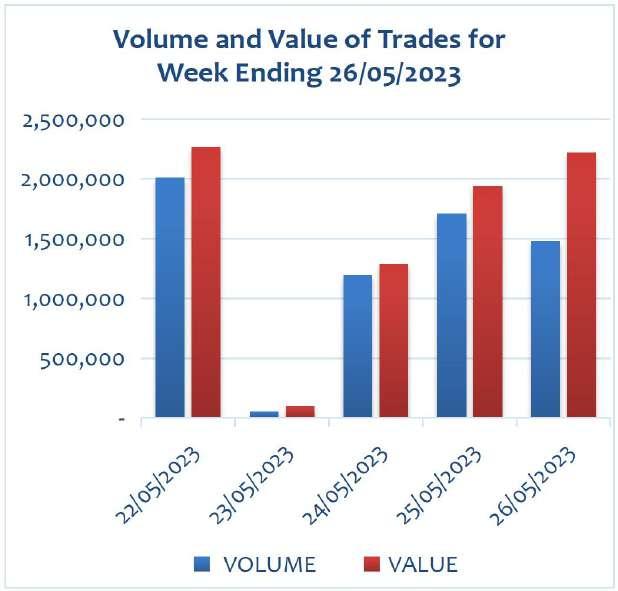

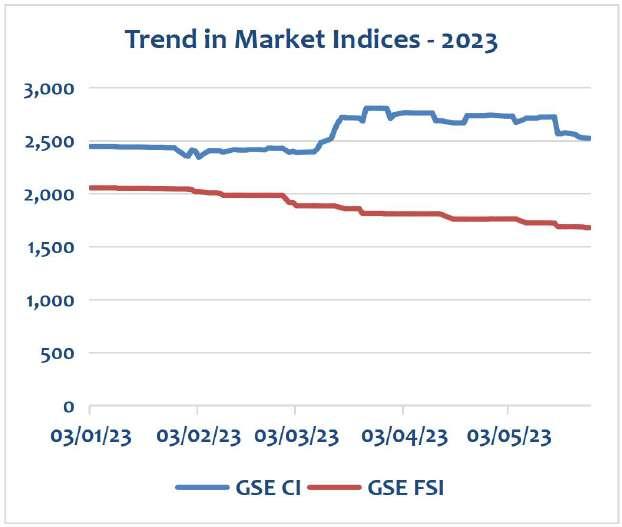
MONDAY, JUNE 05, 2023 |NEWS 8
CIDAN INVESTMENTS LIMITED



WEEKLY MARKET REVIEW FOR WEEK ENDING
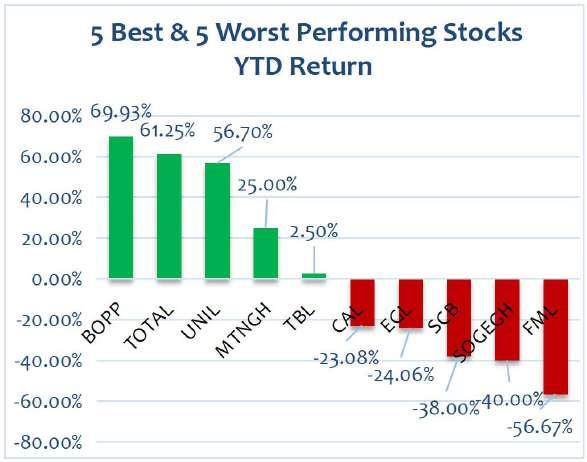
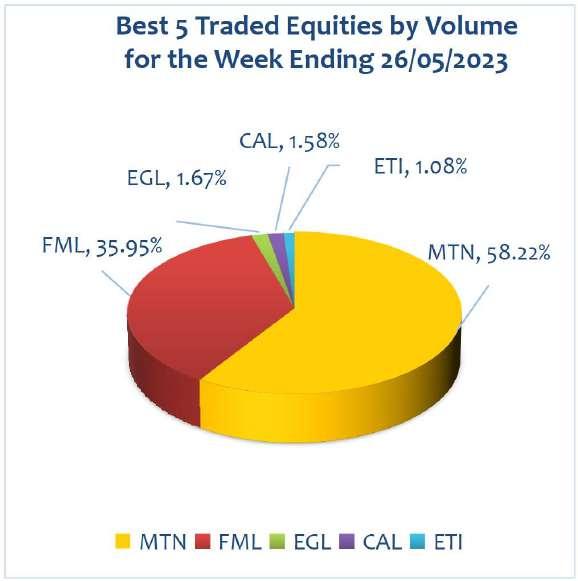
May 26, 2023
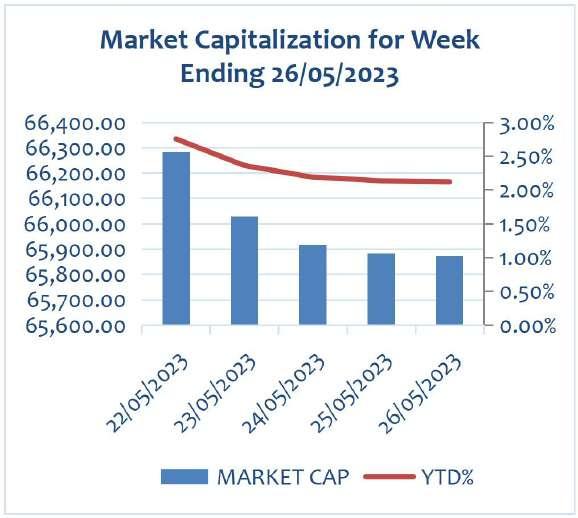
MONDAY, JUNE 05, 2023 9 | GLOBAL ECONOMY
CIDAN INVESTMENTS LIMITED



WEEKLY MARKET REVIEW FOR WEEK ENDING May 26, 2023
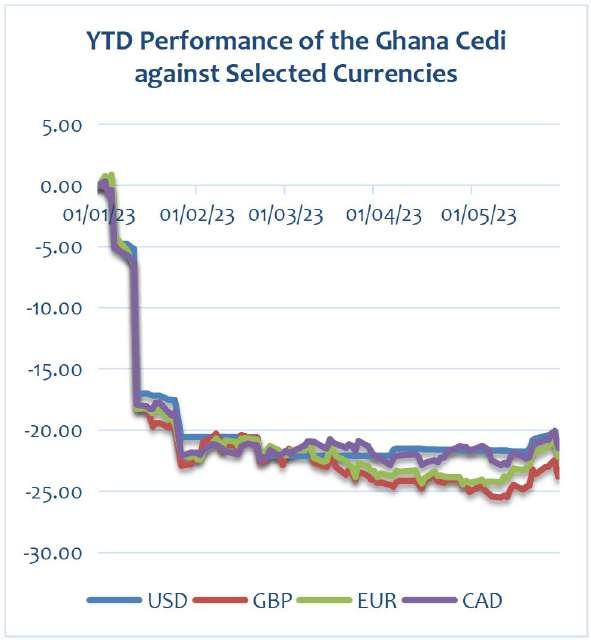
MONDAY, JUNE 05, 2023 10 | FEATURE
CIDAN INVESTMENTS LIMITED


WEEKLY MARKET REVIEW FOR WEEK ENDING May 26, 2023
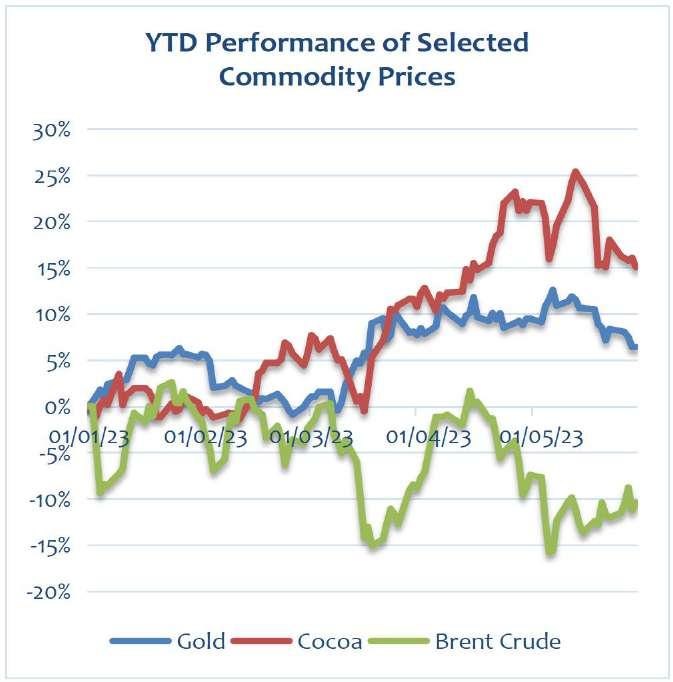
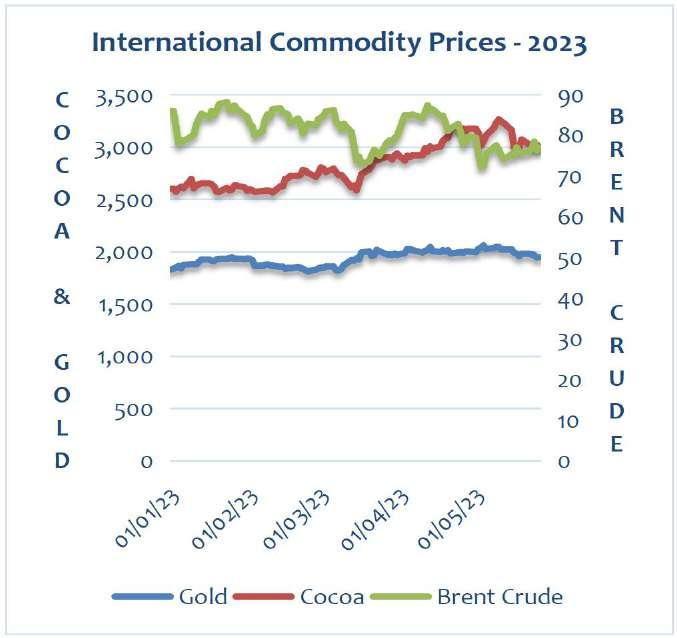
MONDAY, JUNE 05, 2023 11 | NEWS
Revisiting the behavioral revolution in economics
By Antara Haldar
Nathan Nunn’s scholarship on cultural economics.
In 2008, University of Chicago economist (and future Nobel laureate) Richard Thaler and Harvard law professor Cass Sunstein published their book Nudge, which popularized the idea that subtle design changes in the architecture of choice (“nudges”) can in uence our behavior. The book became a global phenomenon and marked an intellectual watershed. But 15 years after its publication, the question remains: Has behavioral economics lived up to the hype?
Thaler and Sunstein based their thesis on the research and insights of psychologists Daniel Kahneman and Amos Tversky, which they had previously applied to the eld of law and economics in a Stanford Law Review article (co-authored with Christine Jolls). While the paper was one of the most cited law-review articles ever, it remained virtually unknown outside the discipline.
But following the publication of Nudge, and against the backdrop of the global nancial crisis, behavioral economics burst into the mainstream, turning Thaler and Sunstein into superstars. Thaler received the Nobel Prize in economics in 2017. Sunstein was recruited by the Obama administration to head the White House O ce of Information and Regulatory A airs and translate the book’s ndings into policy, spawning more than 200 “nudge units” around the world.
Acclaimed author Michael Lewis
fueled further interest in behavioral science with his books Moneyball and The Big Short (the latter’s screen adaptation featured a cameo by Thaler). In just a few short years, behavioral economics went from niche specialization to cultural phenomenon.
Beyond the buzz, the behavioral breakthrough also promised to usher in a full- edged epistemic revolution, fundamentally altering the sources of knowledge deemed valuable. In particular, behavioral economists underscored the importance of psychological factors, in addition to econometric analysis, in understanding how economic institutions work.
The integration of behavioral sciences into microeconomics, which focuses on the decisions and actions of individual actors, has led to a growing recognition that consumers’ and rms’ own heuristics and biases may cause their behavior to deviate from the economic model of rationality. Nowadays, most major universities incorporate behavioral economics into their curricula, and the majority of mainstream textbooks cite behavioral approaches (even if cursorily).
Moreover, by exposing the aws in the prevailing rational-actor approach, behavioral economics has ampli ed other perspectives, such as Ernst Fehr’s work on “strong reciprocity,” Robert Shiller’s Narrative Economics, and

But the impact of the behavioral revolution outside of microeconomics remains modest. Many scholars are still skeptical about incorporating psychological insights into economics, a eld that often models itself after the natural sciences, particularly physics. This skepticism has been further compounded by the widely publicized crisis of replication in psychology. Macroeconomists, who study the aggregate functioning of economies and explore the impact of factors such as output, in ation, exchange rates, and monetary and scal policy, have, in particular, largely ignored the behavioral trend. Their indi erence seems to re ect the belief that individual idiosyncrasies balance out, and that the quirky departures from rationality identi ed by behavioral economists must o set each other. A direct implication of this approach is that quantitative analyses predicated on value-maximizing behavior, such as the dynamic stochastic general equilibrium models that dominate policymaking, need not be improved.
The validity of these assumptions, however, remains uncertain. During banking crises such as the Great Recession of 2008 or the ongoing crisis triggered by the recent collapse of Silicon Valley Bank, the reactions of economic actors – particularly nancial institutions and investors –appear to be driven by herd mentality and what John Maynard Keynes referred to as “animal spirits.”
Even without a nancial panic, as Keynes notes in The General Theory of Employment, Interest, and Money, “anticipating what average opinion expects the average opinion to be” is fraught with error and uncertainty. But, despite George Akerlof’s persistent advocacy for a behav-
ioral macroeconomics that considers “cognitive bias, reciprocity, fairness, herding, and social status,” the real-world foundations of macroeconomic theory remain shaky, and the scope of e orts to systemize our understanding of contagion-type phenomena through tools like network analysis remains limited. The roots of economics’ resistance to the behavioral sciences run deep. Over the past few decades, the eld has acknowledged exceptions to the prevailing neoclassical paradigm, such as Elinor Ostrom’s solutions to the tragedy of the commons and Akerlof, Michael Spence, and Joseph E. Stiglitz’s work on asymmetric information (all four won the Nobel Prize). At the same time, economists have refused to update the discipline’s core assumptions.
This state of a airs can be likened to an imperial government that claims to uphold the rule of law in its colonies. By allowing for a limited release of pressure at the periphery of the paradigm, economists have managed to prevent signi cant changes that might undermine the entire system. Meanwhile, the core principles of the prevailing economic model remain largely unchanged. For economics to re ect human behavior, much less in uence it, the discipline must actively engage with human psychology. But as the list of acknowledged exceptions to the neoclassical framework grows, each subsequent breakthrough becomes a potentially existential challenge to the eld’s established paradigm, undermining the seductive parsimony that has been the source of its power.
By limiting their interventions to nudges, behavioral economists hoped to align themselves with the discipline. But in doing so, they delivered a ratings-conscious “made for TV” version of a revolution. As Gil Scott-Heron famously reminded us, the real thing will not be televised.
PUBLISHED BY BUSINESS24 LTD.

WWW.BUSINESS24.COM.GH | NO. B24/317 | NEWS FOR BUSINESS LEADERS MONDAY, JUNE 05, 2023
com gh | +233 5 45 516 133
EDITOR: BENSON AFFUL editor@business24




























